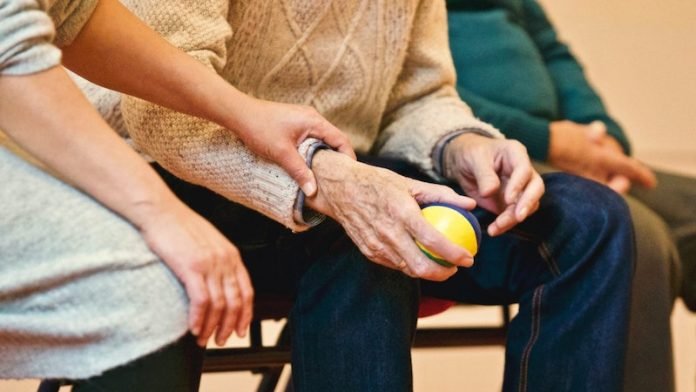
Scientists from Ohio University found that the nervous system plays an important role in age-related weakness.
They suggest that physical weakness in aging may be due, at least in part, to impairments in brain and nerve function, rather than changes in the muscles themselves.
The research is published in JAMA Network Open and was conducted by Brian Clark et al.
In the study, the team looked at a group of 66 older adults (average age in their 70s), who were first categorized as severely weak, modestly weak or strong based on their measured performance on a standardized physical test.
These people were asked to push against resistance with their leg extensor muscles, using as much strength as they could generate.
When they reached their self-perceived limit, the muscle they were using was then stimulated electrically.
If this caused the muscle to put out more force, it was a sign that the strength limitation the person experienced came from somewhere other than the muscle itself.
The researchers found when the added force that came from electrical stimulation was expressed as a percentage increment, it showed that the weaker the test people, the larger a boost their muscles got.
The people in the “severely weak” group (who were on average older) got an increase of 14.2%—twice the 7.1% increase shown by those in the “strong” group.
The team says it is strong evidence that the nervous system is a key culprit in weakness.
The findings has implications for addressing the age-related loss of muscle strength, which can seriously reduce seniors’ mobility. It shows that the nervous system plays a significant role in the problem.
If you care about brain health, please read studies about antibiotic drug that could effectively treat common dementia, and how unhealthy blood pressure increases your dementia risk.
For more information about brain health, please see recent studies about common gut disease linked to doubling in dementia risk, and results reveal a new, complex form of dementia.
Copyright © 2022 Knowridge Science Report. All rights reserved.



